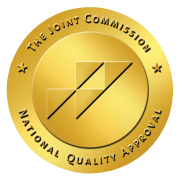Seven Essential DBT Skills
Before we get into the skills you will use in DBT therapy at Lido Wellness Center, we need to overview what DBT is briefly. Dialectical Behavior Therapy is a cognitive-behavioral therapy that was first used to treat Borderline Personality Disorder.
When we say it is cognitive-behavioral therapy, that basically means you change your thoughts (cognitive), which will change your actions (behaviors). It seems simple, and maybe that’s why it’s so effective.
DBT Skills for Mental Illness
But with this in mind, that is why skills are a part of the equation. When you do things, take actions, or change thoughts, you can create a skill that helps you accomplish this again.
Of course, since its inception, DBT skills have proven helpful in a wide range of mental health issues. These include but are not limited to, depression, anxiety, and eating disorders.
DBT Basics
One of the unique factors of DBT skills is the use of Eastern mindfulness practices. It goes beyond thinking patterns (like you might see in CBT) and moves into thinking and practicing. You can see it as more of a holistic approach to the mind. It helps you balance acceptance and change, hence the term “dialectical.”
7 DBT Skills
If you decide to take the DBT path, there will be a great deal to learn and acquire. But here are some skills if you are already on it or would like to sample some of what might be included in the active part of DBT. Ultimately, some guidance with these will truly make a great deal of difference. But feel free to give these a try.
These skills are divided into four modules: mindfulness, distress tolerance, emotion regulation, and interpersonal effectiveness. Each skill is a tool you can use to navigate life’s ups and downs.
1. Mindfulness: Observing
- What it is: Observing is about noticing your environment and internal states without judgment. Think of it as tuning into your radio station.
- Beneficial for: Anxiety, Depression
- Why it helps: Observing your thoughts and feelings without getting caught up in them can reduce stress and improve your overall mental clarity.
2. Mindfulness: Describing
- What it is: Describing involves putting words to your experiences. It’s like being a play-by-play commentator for your own life.
- Beneficial for: PTSD, OCD
- Why it helps: This skill helps recognize and name emotions and thoughts, which can be a first step in managing them effectively.
3. Distress Tolerance: TIP (Temperature, Intense exercise, Paced breathing)
- What it is: This skill involves using physical techniques to reduce distress quickly. Imagine plunging your face into a bowl of cold water (temperature) or doing a quick exercise.
- Beneficial for: Panic Attacks, Impulse Control Disorders
- Why it helps: These activities can quickly trigger physiological changes that calm your mind and body.
4. Distress Tolerance: Radical Acceptance
- What it is: This is all about accepting things as they are, not as you wish. It’s the Zen of DBT.
- Beneficial for: Chronic Pain, Persistent Mental Health Issues
- Why it helps: By accepting reality, you can reduce suffering and begin to move forward rather than getting stuck in a cycle of denial and resistance.
5. Emotion Regulation: Opposite Action
- What it is: This involves doing the opposite of what your emotions tell you—feeling like isolating yourself? Go out and socialize instead.
- Beneficial for: Depression, Social Anxiety
- Why it helps: This skill helps break negative behavioral patterns and reinforce positive actions, even when you don’t feel like them.
6. Emotion Regulation: Checking the Facts
- What it is: This skill verifies whether your emotional reactions match the situation. It’s like being your fact-checker.
- Beneficial for: Borderline Personality Disorder, Generalized Anxiety Disorder
- Why it helps: By aligning your emotions with reality, you can avoid overreacting and reduce unnecessary emotional suffering.
7. Interpersonal Effectiveness: DEAR MAN (Describe, Express, Assert, Reinforce, Mindful, Appear confident, Negotiate)
- What it is: This skill is a blueprint for effective communication and getting what you want respectfully.
- Beneficial for: Relationship Issues, Assertiveness Problems
- Why it helps: DEAR MAN can help you navigate interpersonal relationships more effectively, ensuring your needs are met while respecting others.
Find DBT Skills Help in Southern California
DBT is helpful for a range of mental health issues. From observing your thoughts like a curious bystander to using DEAR MAN to assert your needs, these skills are designed to help you live a more balanced and fulfilling life.
Of course, while this is some solid information (so a little beyond the tip of the iceberg), it is best used in conjunction with a mental health plan and program in place.
If you want to hear more about what DBT skills can do for you, call Lido Wellness. Our highly qualified team is ready to chat with you about the various options you have in the Lido program. Call today: 949-541-8466.




